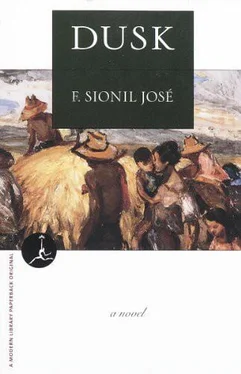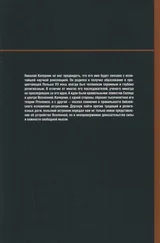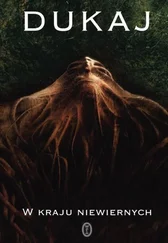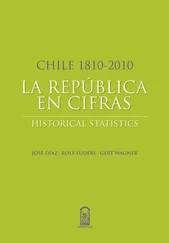“Fire, Father! They are burning the grass!” he shouted. His voice could carry only so far but Ba-ac and the others had already seen the smoke. The fire leaped now in crackling flames, kindling the dry grass as if it were paper. They hurriedly hitched the carts, the children screaming, the women rushing them into the carts even before they were hitched, scooping up their pots, everything, urging, shouting.
“To the sea,” Ba-ac shouted, “Keep inside. Do not show yourselves. Lie down on the floor,” he kept screaming at everyone, then they rushed down the hill through a chasm in the wall of fire, and when they passed through, it seemed the fire was eating into their lungs and they could not breathe, but the animals surged on blindly. They had just cleared the swath of fire when spears rained on them, some striking the hapless animals, some thudding on the woodwork and going through the roof. There were screams in the other carts. “God — they will kill all of us,” Istak said, as a spear dug into the side where Dalin was crouched. It quivered, then was still. A little lower and Dalin would have been hit. The carts raced onward through a narrow valley.
“Do not stop!” Ba-ac shouted. The spears no longer fell but still the carts raced, the carabaos straining. Panting, angry, and afraid, Ba-ac, who was in the lead, finally stopped. They were at the end of the narrow valley which formed a gully to the plain. The hills had dropped behind them.
They gathered the carts again. They were all there — ten of them. The men poured out with spears and their bolos. They would fight here, on level ground, where they could see the Bagos from where they might emerge. The tufts of grass were sparse and not as tall as the grass on the hill.
From one of the carts a wailing erupted. Dalin went to it. When she returned, she told Istak simply. “It is the boy — the youngest — of your aunt Simang. He is dead, a spear through his neck. She told him to lie down but he stuck his head out because he wanted to see.”
They dug a hole in the center of the circle of carts and buried the boy there. Istak led the prayers and though not empowered to bless, he recited the prayer for the dead: Tibi Domine commendamus animam famuli tui …
But the Bagos did not pursue them. The family plucked a dozen spears from the sides of the carts, and from a carabao hit in the rump and bleeding.
“Now we have more weapons,” Ba-ac said.
They did not tarry. For as long as they were on the fringes of the land of the Bagos, they would have to travel in the daytime and risk whatever attack might come rather than be ambushed at night or lulled into the kind of trap they had just escaped.
Dalin pointed to the mountain ahead that dropped into the sea. “Beyond that,” she said, “is Pangasinan. And a week beyond that mountain, we will cross another range. Then it will be the valley.”
Destiny was near, to be reached in one leap or by stretching out a hand. Dalin tried to ease Istak’s mind. There were still forests to pierce and rivers to cross, and death could still lurk behind each shrub, each tree.
An-no’s aloofness and silence bothered Istak. Dalin made it all too clear, like daylight upon the plain, that she preferred Istak. How could he tell his brother that he did not plan this, that it had happened as so many inexplicable things do, because he had stayed behind in Po-on to bear whatever punishment the Spaniards would mete out? Perhaps, since Istak had climbed out of the grave, An-no had controlled his passion and given up his claim as well. Blood, after all, should be thicker than water.
There were times when he envied his younger brother, taller and stronger of build. He wanted An-no to be happy. He could give up Dalin; she was not his property, he had no claim on her. In fact, it was he who must now serve her the rest of his life; he owed her a debt which could never be repaid.
When the caravan had paused for the night and the dogs had quieted down and the children had been put to bed, he would lie awake, listening to her breathing. The silence was always thick — a steady ringing silence as if his ears were hollow and he could clearly hear the whirr of insects, the distant sounds of night. He would turn onto his side and touch her breast, worrying lest he disturb her, for she needed sleep. Sometimes she turned to him, her breath smelling of life and sun warm upon his face. She did not smoke or chew betel nut like the other women. Always she was scrubbing her teeth with twigs crushed into a brush. She was clean and not at all what the men had expected of the girls from Pangasinan. He suspected that she wanted to be touched, but she always said, “Not yet, not yet. You are not ready yet.”
And once, when he was very insistent, she said, “I don’t want you to strain yourself. If you persist, I will sleep outside.”
She was right; there was enough time in the coming days. He could wait. He prayed that the way to the new land would not be difficult. It should not be, not only because Dalin knew the way, but also because she was beside him. In the late afternoon, the clouds boiled in the horizon, then pushed up and hid the sun. The land smelled of heat and dead leaves. April was ending. Soon it would be May, and with it, the rains.
Istak was finally almost completely well; he could climb out of the cart and walk about. But his pallor was the continuing object of curiosity and pity. His hair had thinned and it seemed as if he had been ravaged by those dreaded diseases — typhoid and tuberculosis — which had afflicted so many in Cabugaw, their spittle scattered in the churchyard to be avoided and swept over with dirt.
Again, they traveled by night. To use the road, they would have to circle around the towns where the Guardia would be.
“We must change our names now, Father,” Istak said. “If they ask where we come from, we must be truthful and say we come from Cabugaw. And our names will begin with S just the same. They can’t know all the barrios there, so we won’t say we came from Po-on …”
Ba-ac was seated on the side of the cart, his crumpled face somber in thought. His striped shirt, which Mayang had woven, had not been washed for days and was lined with dirt and sweat. They must stop by a stream soon, to wash and bathe.
“What should we call ourselves now?” Ba-ac asked sadly. “Salvador has always been our name. Yes, the Spaniards gave it to us, but we grew up with it.”
“To survive, Father, we have to change,” Istak said solemnly. He turned to his brothers, Bit-tik and An-no; they were talking with the daughters of Blas, who had joined them in Tagudin. Like his, their hair was long now and they needed a haircut. He remembered the stories of the Bible. “Samson, Father — it begins with S , too, but there is not a single Samson in the registry in Cabugaw — I know, because I wrote in it for the last five years every time there was a birth or a death.”
“And how about our cédulas ?”
“We will throw them away — and we will say that they were burned in our house when we left. We will have new ones when we reach the valley, and we will have our new name on them …”
New land, new name. They had always been Ilokano, with all the faults, the vices, that had shaped them, the habits which the narrow and infertile plain had etched in them. This is the way you are, Padre Jose had told him, but you are also a loyal people who know how to return a trust, to stake your life for a friendship that had withstood storm, earthquake, and fire.
He had wanted to ask the old priest what precisely he had meant. Was this the hell he had been talking about? Why was it impossible for the three priests who were executed in Cavite to serve God as they saw fit? Was this the Guardia Civil marauding the countryside and forcing tribute from people who did not even have enough to eat? He was not going to live with the people in their wretched villages — he was going to be a priest, and he would have a new name, just as the high and the mighty had new names, the Don, the gobernadorcillo , the Apo. He would not be just Eustaquio Salvador, the peasant from Po-on. He had suffered through Latin, gotten up every morning at five to clean the sacristy, to toll the bells. He was going to be near God, said Padre Jose, and to be so, he must have a good name. It is what one really owns in the end, a name. If it were silver, you would have to polish it every so often with deeds. Even in isolation, silver tarnishes. Look at the candelabra, the crucifix, the chalice — aren’t they streaked with tarnish if we don’t polish them? But someday an earthquake or some heavenly fire will destroy everything and ashes will be blown in the wind. What then? There are names which will live forever, and he had read them, in Latin, in Spanish. And would Eustaquio Salvador — or Samson — endure? Would he engrave his name on the land that he would clear, in the children he would sire?
Читать дальше












